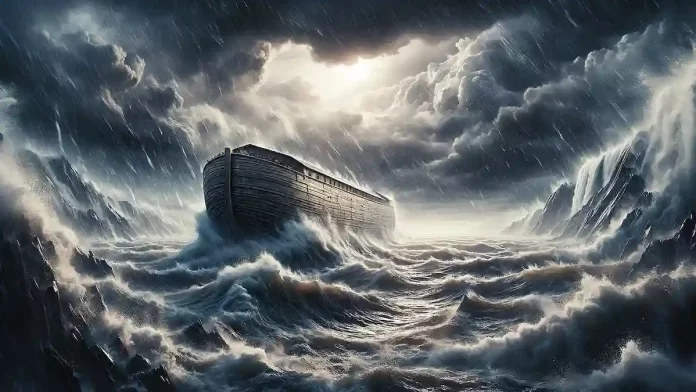Imagine a ship, the same one Odysseus braved stormy seas in or Columbus crossed the Atlantic on. But what if, over time, every rotting plank was replaced, one by one, until no original wood remained?
Is it still the same ship? This captivating thought experiment, known as the Ship of Theseus, has perplexed philosophers for centuries, and its echoes resound even in our modern world.
From Athens to Academia: A Paradox Sets Sail
The Ship of Theseus traces its origin to Plutarch’s “Life of Theseus,” penned in the 1st century AD. He posed the question within the context of Theseus’s legendary ship, preserved for centuries with constant repairs.
If all its parts were replaced,is it the same ship that sailed with the hero? This seemingly simple query opens a Pandora’s box of philosophical quandaries.
Through the Ages, Seeking Answers
The paradox reverberated through the halls of academia for millennia. Heraclitus, a pre-Socratic philosopher, argued that nothing truly remains the same as everything constantly flows.
Plato, on the other hand, emphasized the enduring Form of an object regardless of its changing material components.
The ancient Buddhist text Da zhidu lun contains a similar philosophical puzzle: a story of a traveller who encountered two demons in the night. As one demon ripped off all parts of the traveller’s body one by one, the other demon replaced them with those of a corpse, and the traveller was confused about who he was.
Theseus’s ship became a battleground for competing notions of identity, change, and continuity.
Modern Twists on an Ancient Conundrum
The Ship of Theseus isn’t confined to dusty scrolls. Thomas Hobbes, in the 17th century, proposed a variant where the replaced planks are used to build a second ship.
John Locke pondered a sock becoming something else after patch by patch. We encounter echoes of the paradox in the debate over whether George Washington’s axe, with a replaced head and handle, is still “his” axe.
USS Constitution is acknowledged as a modern Ship of Theseus by the USS Constitution Museum. Since it was first laid down in 1794, the Constitution has undergone numerous repairs, modifications, and reconstructions.
Quoting from the website of the Antique and Classic Boat Society, “The USS Constitution has essentially none of its original wood but we believe no one would consider it a replica. It is Old Ironsides.”
Beyond Wood and Metal: The Significance of the Paradox
The Ship of Theseus is more than just a mental exercise. It delves into the heart of what makes things what they are. Does an object reside in its material form, its history, or some intangible essence?
Are we defined by our physical bodies or the sum of our experiences? These questions touch upon everything from personal identity to cultural preservation.
Charting Solutions: Navigating the Paradoxical Sea
There’s no one definitive answer to the Ship of Theseus puzzle. Different philosophers have proposed their own solutions.
Some argue that the ship maintains its identity through its form and function, even with new parts. Others believe that the original ship ceases to exist once its materiality changes completely.
Still, some contend that identity is a matter of degree,with the ship morphing into a new entity over time.
According to the Stanford Encyclopedia of Philosophy, the most popular solution is to accept the conclusion that the material out of which the ship is made is not the same object as the ship, but that the two objects simply occupy the same space at the same time.
Relevance in our Digital Age
The Ship of Theseus sails right into the digital realm. What happens to our online identities when profiles are updated,avatars change, and memories are stored on different servers?
Does a downloaded song remain the same even when played on different devices? The concept of constant change and digital fluidity echoes the ancient paradox.
A Voyage that Never Ends
The Ship of Theseus remains a timeless paradox, its journey never reaching a final destination. It compels us to question our assumptions about objects, identity, and the very nature of change.
As we sail through a world of perpetual updates and transformations, the Ship of Theseus serves as a beacon, reminding us of the enduring complexities that lie beneath the surface of seemingly simple questions.
So, the next time you admire a historical artifact or update your online profile, remember the Ship of Theseus – a paradox that invites us to ponder the ever-shifting sands of existence.
Every soul will taste death. And you will only receive your full reward on the Day of Judgment. Whoever is spared from the Fire and is admitted into Paradise will indeed triumph, whereas the life of this world is no more than the delusion of enjoyment.
Holy Quran 3:185
